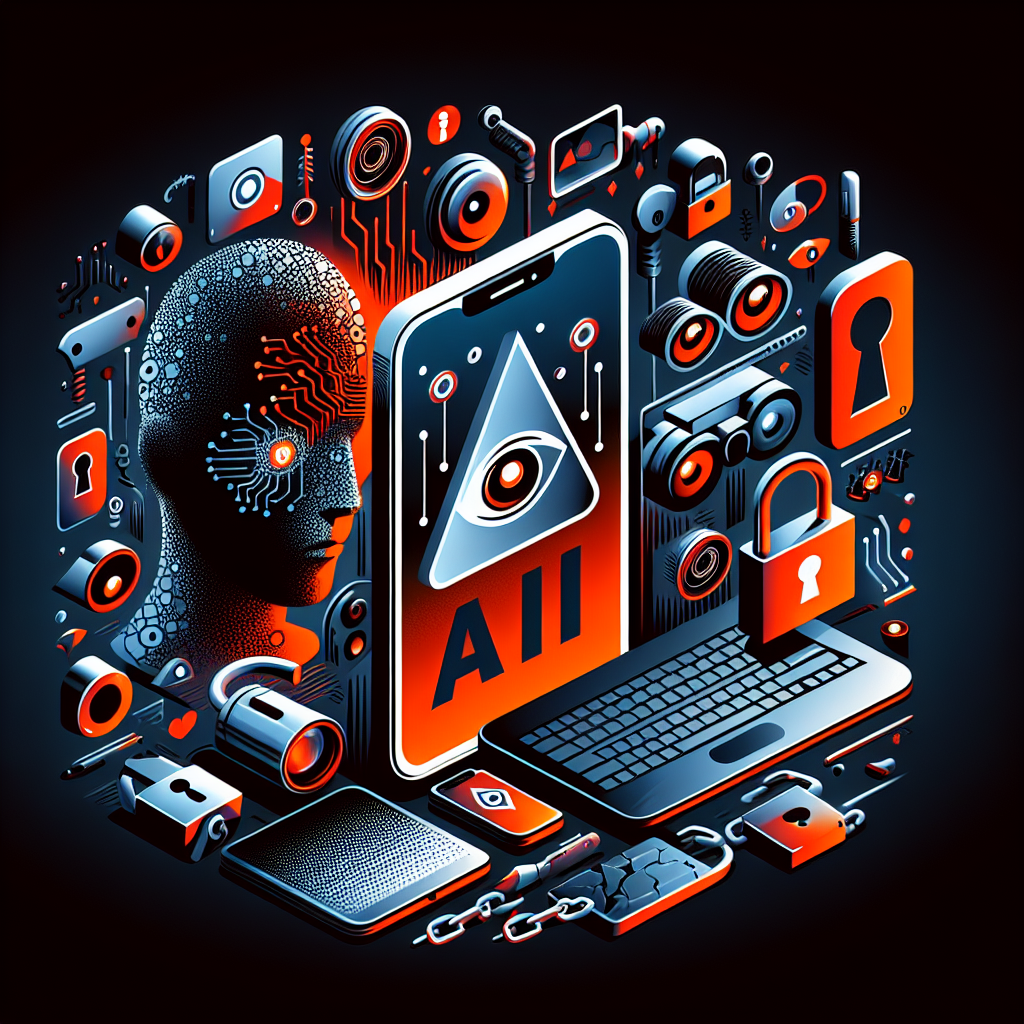The dark side of AI: privacy concerns in the digital age
Artificial Intelligence (AI) has rapidly become a pervasive force in our daily lives, impacting everything from the way we shop online to how we communicate with one another. While AI has the potential to revolutionize industries and improve efficiency, there is a dark side to this technology that often goes overlooked – privacy concerns.
As AI becomes more advanced, it has the ability to collect and analyze vast amounts of data about individuals, often without their knowledge or consent. This data can include everything from browsing history and social media activity to personal information such as financial records and medical history. While this data can be used to create personalized experiences and improve services, it also raises serious privacy concerns.
One of the biggest privacy concerns surrounding AI is the potential for data breaches and hacking. As AI systems become more sophisticated and interconnected, they become increasingly vulnerable to cyberattacks. Hackers can exploit vulnerabilities in AI algorithms to access sensitive personal information, putting individuals at risk of identity theft, fraud, and other forms of cybercrime.
Another privacy concern is the lack of transparency and accountability in AI systems. Many AI algorithms are black boxes, meaning that their decision-making processes are opaque and difficult to understand. This lack of transparency makes it challenging for individuals to know how their data is being used and for regulators to hold companies accountable for their actions.
Furthermore, AI has the potential to perpetuate bias and discrimination. AI algorithms are only as good as the data they are trained on, and if that data is biased or discriminatory, the AI system will reflect those biases. This can result in unfair treatment of individuals based on factors such as race, gender, or socioeconomic status.
In addition, the widespread use of AI in surveillance and monitoring raises concerns about privacy and civil liberties. AI-powered surveillance systems can track individuals’ movements, behavior, and activities in real-time, leading to concerns about mass surveillance and the erosion of privacy rights.
Overall, the dark side of AI highlights the urgent need for robust privacy protections and regulations to safeguard individuals’ rights in the digital age. As AI continues to evolve and expand its reach, it is essential that we address these privacy concerns to ensure that AI technologies are used ethically and responsibly.
FAQs:
Q: How can individuals protect their privacy in the age of AI?
A: There are several steps individuals can take to protect their privacy in the age of AI. These include being mindful of the data they share online, using strong passwords and security measures, and staying informed about how their data is being used by companies and organizations.
Q: What role do regulators play in addressing privacy concerns related to AI?
A: Regulators play a crucial role in addressing privacy concerns related to AI by implementing and enforcing laws and regulations that protect individuals’ privacy rights. Regulators can also work with industry stakeholders to develop best practices and standards for the ethical use of AI technologies.
Q: How can companies and organizations ensure that their AI systems are ethical and responsible?
A: Companies and organizations can ensure that their AI systems are ethical and responsible by conducting thorough audits of their AI algorithms, ensuring transparency and accountability in their decision-making processes, and implementing safeguards to prevent bias and discrimination.
Q: What are some examples of AI technologies that raise privacy concerns?
A: Some examples of AI technologies that raise privacy concerns include facial recognition systems, predictive policing algorithms, and personalized advertising platforms. These technologies have the potential to infringe on individuals’ privacy rights and raise questions about the ethical implications of their use.
In conclusion, the dark side of AI highlights the need for a more nuanced and thoughtful approach to the development and deployment of AI technologies. By addressing privacy concerns and implementing robust safeguards, we can ensure that AI is used in a way that respects individuals’ rights and promotes a more ethical and responsible digital age.

